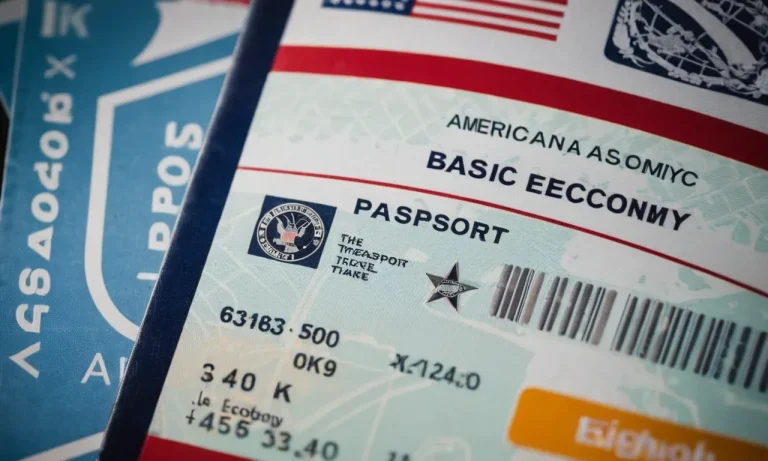Are you planning a road trip across multiple states? While renting a car to journey through different destinations can be convenient, returning it out of state requires some extra preparation.
Dropping off your rental car over state lines typically incurs additional fees and restrictions.
If you’re short on time, here’s a quick answer to your question: Inform the rental company upfront about an out-of-state drop-off to understand their policies.
Review one-way rental and drop-off fees. Make sure you have the right insurance coverage across state lines.
Return the car on time, refill the gas, and get inspection paperwork.
Coordinating with the Rental Company
Returning a rental car in another state can be a convenient and flexible option for travelers.
However, it requires some coordination with the rental company to ensure a smooth and hassle-free experience.
Here are some important steps to follow when coordinating with the rental company:
Discuss Plans at Time of Reservation
When making a reservation for a rental car, it’s crucial to inform the rental company about your intention to drop off the car in another state.
This will allow them to provide you with the necessary information and guidelines for returning the car in a different location.
By discussing your plans upfront, you can avoid any confusion or unexpected fees later on.
Understand Drop-off Restrictions
Each rental company has its own policies and restrictions when it comes to returning a car in another state.
It’s important to familiarize yourself with these restrictions to avoid any potential issues.
Some companies may have specific drop-off locations or limitations on interstate travel.
By understanding these restrictions in advance, you can plan your trip accordingly and choose a rental company that offers the flexibility you need.
Ask about Required Documentation
Returning a rental car in another state may require additional documentation.
It’s important to ask the rental company about any specific requirements, such as proof of insurance, driver’s license, or rental agreement.
By being prepared with the necessary documents, you can avoid any delays or complications when returning the car.
Remember, communication is key when coordinating with the rental company.
By discussing your plans, understanding the drop-off restrictions, and ensuring you have the required documentation, you can have a stress-free experience returning a rental car in another state.
One-Way and Out-of-State Fees
Returning a rental car in another state can be a convenient option for travelers looking to explore different destinations without the hassle of returning the car to its original location.
However, it’s important to be aware of the potential fees and charges that may apply when returning a rental car in another state.
Drop-off Charges Vary by Company
Each rental car company has its own policies and fees when it comes to returning a car in a different state.
Some companies may charge a flat fee for one-way rentals, while others may calculate the fee based on factors such as distance, time, and availability.
It’s essential to check with the rental car company beforehand to understand their specific policies and fees.
Assess Mileage Limitations
When returning a rental car in another state, it’s important to consider any mileage limitations set by the rental car company.
Some companies may impose restrictions on the number of miles you can drive before additional fees are applied.
Make sure to factor in the distance between your pick-up and drop-off locations to ensure you stay within the allowed mileage.
Factor in Taxes and Surcharges
In addition to the one-way and out-of-state fees, it’s crucial to consider any applicable taxes and surcharges. These charges can vary depending on the state and rental car company.
It’s advisable to research and understand the tax and surcharge rates of the specific states you will be traveling to and from.
This will help you budget accordingly and avoid any unexpected costs.
Remember, returning a rental car in another state can offer flexibility and convenience, but it’s essential to be informed about the potential fees and charges involved.
By understanding the drop-off charges, mileage limitations, and additional taxes and surcharges, you can plan your trip effectively and avoid any surprises when returning the rental car.
Insurance Considerations
When returning a rental car in another state, it’s crucial to consider your insurance coverage to ensure you’re adequately protected.
Here are some important insurance considerations to keep in mind:
Ensure Adequate Coverage
Before embarking on your journey, review your personal auto insurance policy to determine if it provides coverage for rental vehicles.
Many policies do extend coverage to rental cars, but it’s essential to check the specifics of your policy to understand the extent of the coverage.
If your personal policy doesn’t cover rental cars, you may need to purchase additional insurance from the rental car company.
This additional coverage, known as a collision damage waiver (CDW) or loss damage waiver (LDW), can provide protection in case of accidents, theft, or damage to the rental car.
While it may add to the overall cost of the rental, it can offer peace of mind during your trip.
Review Liability Across State Lines
Liability coverage is another crucial aspect to consider when returning a rental car in another state.
However, liability coverage requirements can vary from state to state.
Before returning the rental car, familiarize yourself with the liability coverage limits mandated by the state you’re visiting.
Ensure that your personal auto insurance policy or the rental car company’s insurance provides coverage that meets or exceeds these requirements.
If not, you may need to purchase additional liability coverage to comply with the state’s regulations.
Look into Supplemental Options
In addition to the basic insurance coverage options, rental car companies often offer supplemental insurance options that can provide additional benefits and protection.
These options may include personal accident insurance, personal effects coverage, or roadside assistance.
Consider your specific needs and evaluate whether these supplemental options would be beneficial for your trip.
For example, if you’re traveling with valuable items, personal effects coverage can provide reimbursement in case of theft or damage to your belongings.
It’s important to weigh the cost of these additional options against the potential benefits they offer.
Remember, every rental car company may have different insurance policies and options available.
Therefore, it’s crucial to thoroughly read and understand the terms and conditions of the rental agreement and insurance policies before making any decisions.

Returning the Rental Car
Returning a rental car in another state may seem like a daunting task, but with the right preparation, it can be a smooth and hassle-free process.
Here are some essential tips to ensure a successful return:
Check for Return Policies
Before returning the rental car, it is crucial to familiarize yourself with the return policies of the rental company.
Each company may have different rules and regulations, such as specific return locations or required documentation.
By knowing the policies in advance, you can avoid any last-minute surprises or additional fees.
Arrive on Time
Punctuality is key when returning a rental car in another state. Make sure to plan your journey accordingly to arrive at the designated location on time.
Returning the car late can result in extra charges, so it’s always better to be early than late.
If you encounter any unexpected delays, don’t hesitate to contact the rental company and inform them of the situation.
Refuel the Tank
One of the most crucial steps in returning a rental car is ensuring that the tank is refueled.
Most rental companies require the car to be returned with a full tank of gas, and failing to do so can lead to hefty refueling charges.
Fill up the tank at a nearby gas station before returning the car, and keep the receipt as proof.
Get Inspection Paperwork
Prior to returning the rental car, it’s important to obtain inspection paperwork to document the condition of the vehicle.
This protects you from being held responsible for any damages that may have occurred after you returned the car.
It’s advisable to request an inspection from a rental company representative and carefully examine the car together.
Take pictures or videos as evidence, and make sure both parties sign the inspection report.
By following these steps, returning a rental car in another state can be a stress-free experience. Remember to check for return policies, arrive on time, refuel the tank, and get inspection paperwork.
With proper preparation, you can confidently return the rental car and focus on enjoying the rest of your trip!
Alternatives to One-Way Rentals
Returning a rental car in another state can sometimes be a hassle, especially if you’re trying to avoid additional fees or logistical challenges.
Fortunately, there are a few alternatives to consider that can help simplify the process and potentially save you money.
Book Round-Trips Instead
One option to avoid the complexities of returning a rental car in another state is to book a round-trip instead.
By planning your travel itinerary in a way that allows you to return the car to the same location where you picked it up, you can bypass any extra fees or restrictions associated with one-way rentals.
This can be particularly beneficial if your travel plans are flexible and you have the option to loop back to your original destination.
Consider Rental Car Relocation Deals
Rental car relocation deals can be a great way to return a rental car in another state without incurring hefty fees.
Rental car companies often need to move their vehicles from one location to another, and they offer special rates or even free rentals to customers who are willing to help them with this relocation process.
Keep an eye out for these deals on rental car company websites or consider signing up for newsletters to receive notifications about any available relocation opportunities.
Use Rideshare or Delivery Services
If you’re unable to find a suitable round-trip option or a rental car relocation deal, another alternative is to use rideshare or delivery services.
Companies like Uber, Lyft, or even local taxi services can provide transportation from your current location to your desired destination.
Additionally, some rental car companies offer delivery services where they can bring the rental car to you and pick it up when you’re done, eliminating the need for you to physically return the car to a different state.
Remember, before making any decisions, it’s important to carefully review the terms and conditions of your rental car agreement and contact the rental car company directly for any specific requirements or restrictions that may apply to returning a rental car in another state.
Conclusion
While dropping off a rental car out of state gives you flexibility in your travels, it requires extra coordination with additional costs.
Connect with the rental company upfront, understand all fees, secure adequate insurance, and carefully follow return policies.
With the right preparation, you can road trip across state lines and complete your one-way rental smoothly.
By planning ahead, you can conveniently pick up a rental car in one state and drop it off in another. Follow these tips for a smooth out-of-state rental return.






